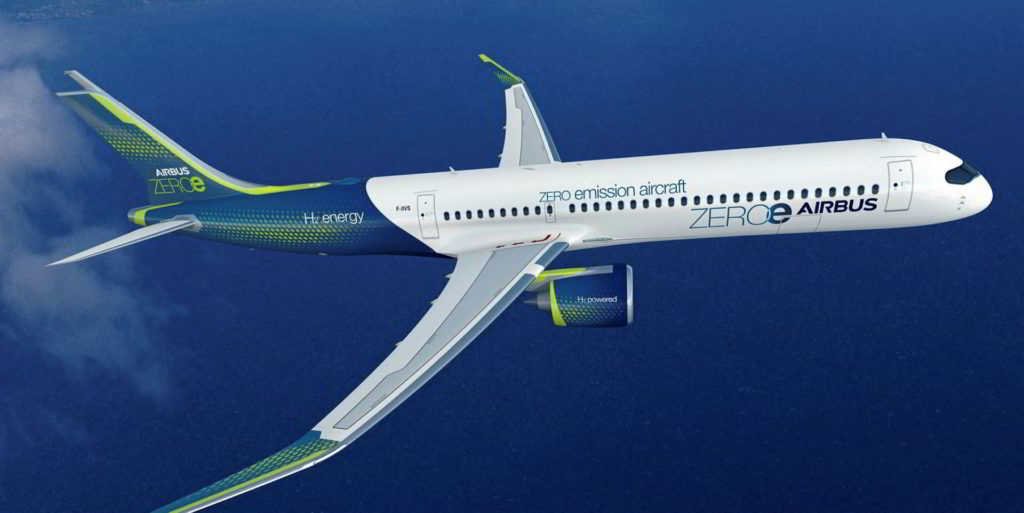European Multinational Aerospace Corporation commits to fight climate change by developing Hydrogen powered Airbus which emit 0% CO2 by 2035.
The Aerospace technology has attained much development since the first commercial flight flown in 1914 which run on gasoline powered propeller driven biplane.
Technology has evolved to comply with the growing pace of innovation. But the rising awareness of climate change raised the concern of Carbon dioxide emission in the atmosphere.
Hence, Airbus has planned to design commercial flight heavily powered by Hydrogen which will emit Water.

Challenge to design Hydrogen powered Commercial Aircraft
In the history of evolving technology, Boeing- an US based aviation manufacturing giant did actually fly in 2008 solely relying on Hydrogen. However, the 2-seater plane took a flight for a duration of 20 minutes.
And here lies the biggest challenge. To run a commercial flight, the storage capacity has to be way bigger than the fuel capacity present in modern flights.
Science says that hydrogen will provide roughly 3 times the energy per unit mass provided by modern fuels. And more than 100 times energy per unit mass provided by Lithium-ion batteries.
But by volume, one litre of Kerosene is equivalent to 3000 litres of gaseous hydrogen. Hence, the storage capacity has become the biggest challenge to make commercial flights run comfortably with required demands.
Solution of making a pressurised liquified Hydrogen
Commercial hydrogen powered flights are certainly expected to make 20,000 take-offs and landings. And should have the capacity to store liquid hydrogen under heavy pressure of 700 bars, which is used in automotive and aerospace industries.
Cryogenic liquid hydrogen storage tanks will require -253◦C temperature for converting hydrogen to liquid and then storing it.
The storing and using the liquid Hydrogen requires much innovation in design, as stated by David Butters who is the Head of Engineering for Liq. Hydrogen storage and Distribution at Airbus.
The Zero emission Development Centers in Nantes, France and Bremen, Germany will keep a tab on the improvement. And it is expected that by 2023, the flight will be ready for ground testing and by 2025, it’ll be ready for flight testing.
